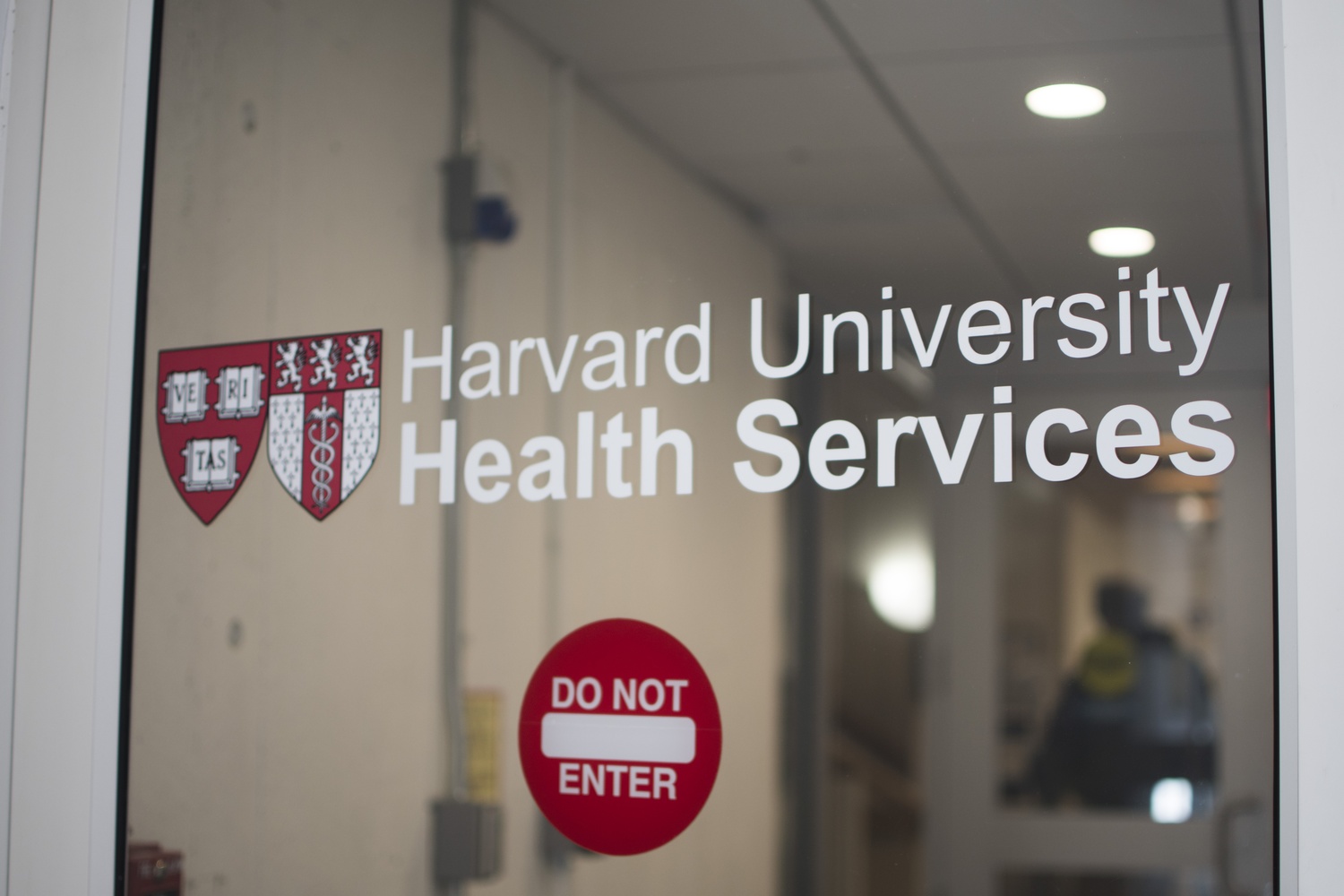
News
Harvard Grad Union Agrees To Bargain Without Ground Rules

News
Harvard Chabad Petitions to Change City Zoning Laws

News
Kestenbaum Files Opposition to Harvard’s Request for Documents

News
Harvard Agrees to a 1-Year $6 Million PILOT Agreement With the City of Cambridge

News
HUA Election Will Feature No Referenda or Survey Questions
Students Push for Narcan Availability on Harvard's Campus to Combat Overdoses

Two Harvard seniors — inspired after taking a course on the opioid epidemic — are lobbying the University to distribute Narcan, a narcotic blocking nasal spray, in automatic external defibrillator cabinets across campus.
The two students leading the effort, Eana X. Meng ’19 and Kailash Sundaram ’19, said they hope to raise awareness on campus of the problems of overdosing. This fall, the duo took History of Science Professor Allan M. Brandt’s class History of Science 249: “The Opioid Epidemic in Historical Perspective,” which traced the emergence of the opioid epidemic in the U.S. and considered it in relation to similar epidemics throughout history.
“We spent a good deal of time talking about how there is a perception sometimes on campus that the opioid epidemic doesn’t really affect Harvard, and I think the students in the course really wanted to find approaches to make people more aware, to understand more clearly, the problems of drug use,” Brandt said in an interview.
Meng said she decided to take the class this fall because of her interest in the crisis as well as her focus on pain management and alternative medicine. Sundaram, a social studies concentrator, said he enrolled in the course to support his thesis research on the opioid epidemic.
Through taking the class, Meng and Sundaram said they were motivated to put the material they were learning in class into action on campus, with the goal of making Harvard a safer environment.
Narcan — a brand of Naxloxone — can be administered intravenously or via nasal spray. Treating someone who has overdosed on opioids immediately with Narcan can reverse the effects of an overdose temporarily, allowing time to get the person to a hospital before symptoms return.
“We talked a lot about harm reduction approaches, which are approaches that help with reducing the harm that comes from negative behaviors — drug use being one of them,” Sundaram said. “A harm reduction approach that we talked a lot about was Naloxone access and distribution and just having that available could help save people’s lives.”
After the students proposed making Naloxone as easily accessible as AED units in dorms, Adams House Faculty Deans John G. “Sean” Palfrey ’67 and Judith S. “Judy” Palfrey ’67 eagerly supported the students’ efforts by encouraging them and helping them contact resources, according to Meng and Sundaram. In an interview, Sean Palfrey said that he and Judith Palfrey, both pediatricians, initiated the effort to make AEDs widespread on campus 15 years ago after a student passed away due to the lack of an accessible AED.
Palfrey said he sees the dangers of opioid abuse as equally significant.
“We’re both pediatricians and professors in pediatrics and public health,” he said. “This is something we deal with all day, every day. Unfortunately, more and more so. We have also been Faculty Deans for 20 years. We’ve been involved in trying to incorporate instruments that might be very useful, helpful, life-saving in various places around the campus and training tutors and staff and faculty deans.”
Despite faculty and administrator support, Meng and Sundaram said there are a few more steps they still have to take.
“There a couple logistical issues such as funding,” Meng said. “We have to figure out where the funding comes from. Obviously yes, Harvard does have a lot of money, but the money is allocated to specific uses so we’ve talked to our House deans and some of them recommended maybe a private donor.”
Meng and Sundaram plan to meet with wellness teams and Harvard University Health Services by the end of the month.
“The sooner Naloxone is available on campus, the better,” Sundaram said.
University President Lawrence S. Bacow has made efforts to address the opioid crisis a highlight of his first few months in office. In September, Bacow announced a new partnership with the University of Michigan to plan a summit addressing the opioid crisis. Meng and Sundaram said they hope to see change happening on campus by the time of the summit, but said that Naloxone should not be the permanent solution.
“This is really just the beginning,” Meng said.
Want to keep up with breaking news? Subscribe to our email newsletter.
From Our Advertisers

Over 300+ courses at prestigious colleges and universities in the US and UK are at your disposal.

Where you should have gotten your protein since 1998.

Serve as a proctor for Harvard Summer School (HSS) students, either in the Secondary School Program (SSP), General Program (GP), or Pre-College Program.

With an increasingly competitive Law School admissions process, it's important to understand what makes an applicant stand out.

Welcome to your one-stop gifting destination for men and women—it's like your neighborhood holiday shop, but way cooler.

HUSL seeks to create and empower a community of students who are seeking pathways into the Sports Business Industry.
